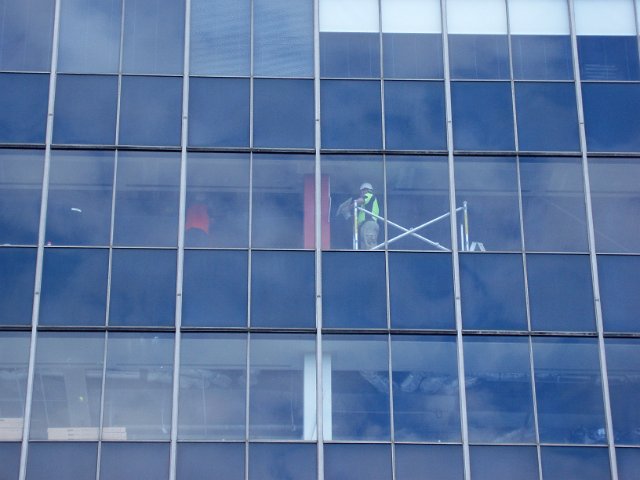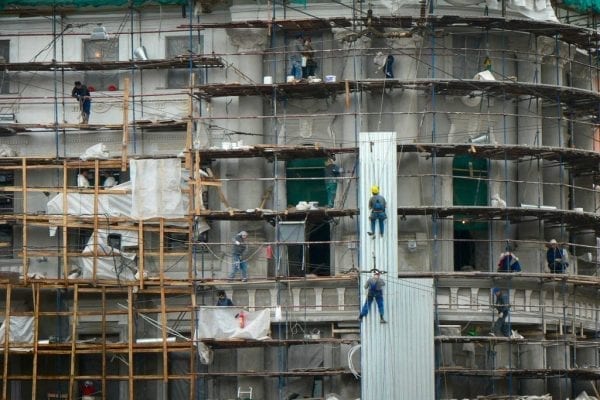What is Quiet Enjoyment?
Most building owners and tenants are familiar with the concept of ‘quiet enjoyment,’ but they may not understand what it really means. There is often a ‘quiet enjoyment’ clause included in rental agreements. Even if it is not, it is implied in every lease, verbal or written, regardless of any limitations that may be stated on the lease agreement.
Quiet enjoyment is a covenant that promises that you will not do anything to interfere with a tenant’s reasonable use and enjoyment of their leased premises, and that you will ensure that a tenant’s use and enjoyment of the property will not be disturbed.
Quiet enjoyment includes various tenant rights, such as the right to exclude others from the premises, the right to peace and quiet, the right to clean premises, the right to basic services, such as heat and hot water, and the right to reasonable access. Common violations of the covenant of quiet enjoyment include failing to resolve nuisances or damages that deprive tenants of the use of their space, such as rodent infestations, leaky roofs, or noise disturbances from neighbors.
Understanding this right to quiet enjoyment is important for property managers. Not only can violations lead to costly lawsuits, but compliance is good business that will increase tenant retention. Violating the implied covenant of quiet enjoyment, even when not explicit, is a breach of the lease agreement that can result in claims of compensation.
Quiet Enjoyment in Commercial Leases
Commercial leases usually contain an explicit quiet enjoyment provision. However, unlike in residential rental agreements, parties to a commercial lease can modify or waive the covenant of quiet enjoyment, such as in a provision that limits tenant recourse to a breach by the landlord. For that reason, quiet enjoyment in a commercial lease is determined by the specific terms of that lease. Because commercial leases are more variable in their terms and because of the larger investment made by tenants, lawsuits based on quiet enjoyment are more common than in residential leases.
Two common reasons for modification of a quiet enjoyment clause in commercial leases are zoning regulations and shared premises. A quiet enjoyment clause in a commercial lease may be altered, to assure the tenant that the property and the uses stated in the rental agreement conform with all applicable zoning regulations and allow the landlord to enforce these regulations. A quiet enjoyment clause may also be altered to address rental spaces shared by multiple tenants, such as office buildings, shielding the landlord from the possible impacts of tenants on each other or of necessary building maintenance.
Quiet Enjoyment and Renovation
Renovations are often a win-win for tenants and landlords; tenants get a better space, and owners can increase the value of their property. However, in a commercial space, renovations may diminish tenant visibility to customers and interfere with their quiet use and enjoyment. A provision that explicitly allows remodeling without claims for damages can modify the covenant of quiet enjoyment, nullifying tenant claims for damages. But unless the lease includes the permission to make major repairs, the tenant is protected by the right to quiet enjoyment, which includes protection from noise and intrusion.
By following best practices, negotiating with tenants, and being considerate of tenant needs, owners and managers can mitigate the impact of renovation on quiet enjoyment, regardless of the legal requirements of their particular lease. You may agree to limit construction hours or offer compensation or a rent reduction. Caring for your tenant relationships can ensure the renovation is a win for all parties involved.
Quiet Enjoyment and Environmental Health
Whether it’s secondhand smoke or mold growth, environmental conditions are a key part of the covenant of quiet enjoyment. The exact extent of the responsibility of the owner or manager can vary significantly, depending on whether the property is residential or commercial. Ensuring a building is up to code and follows environmental guidelines, including repairing any problem that endangers the health or safety of a tenant (such as mold growth), is an aspect of quiet enjoyment, as well as any relevant regulations.
The legal responsibility of the owner to deal with an environmental issue such as mold growth depends on the lease itself and where the issue is. Typically, in commercial leases, the landlord has no implied duty to maintain the premises. However, many leases will obligate the landlord to maintain common areas, or if the issue is on a part of the premises where the owner has retained control, there is an implied obligation to maintain that area. Neglecting to do so can constitute a breach of quiet enjoyment, and entitle the tenant to a claim.
Undertaking renovations? Dealing with environmental concerns? Wondering whether it will impact your tenant’s quiet enjoyment? To learn more, contact us today.






